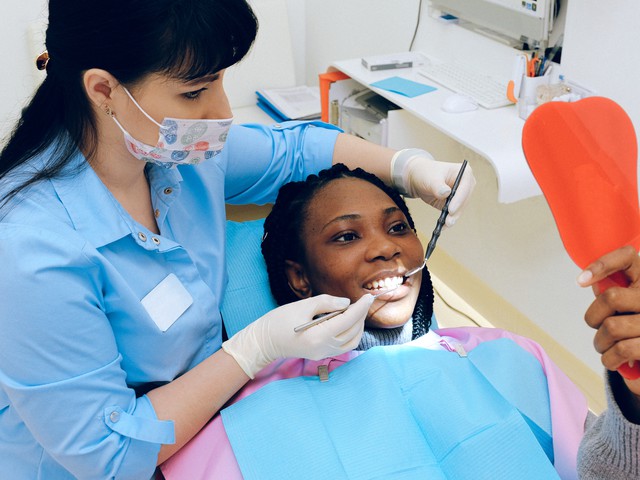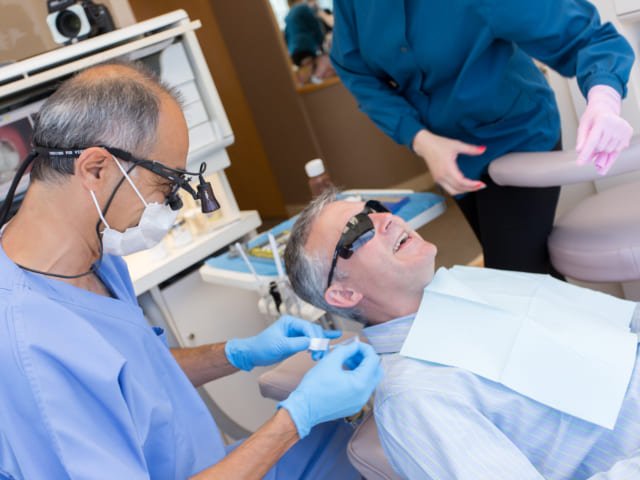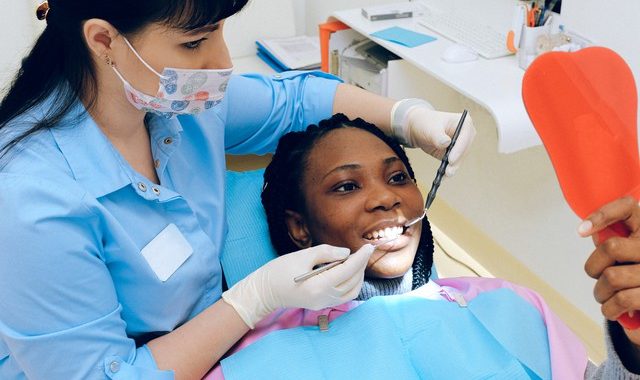How to Prepare for a Dental Procedure

Visiting the dentist is a common part of our healthcare routine, but for many, the thought of a dental procedure can cause anxiety. Whether it’s a routine cleaning, filling, or a more involved procedure like a root canal, being prepared can make the experience much more comfortable and less stressful. In this post, we’ll share practical tips to help you prepare for your dental procedure, ensuring a smooth and successful visit.
1. Understand the Procedure
One of the best ways to reduce anxiety about an upcoming dental procedure is to understand what will happen. Many people feel nervous simply because they don’t know what to expect. Whether you’re having a simple filling or something more complex like a crown or root canal, ask your dentist to explain the procedure in detail.
Understanding the steps involved will give you confidence and clarity. Your dentist should explain:
- Why the procedure is necessary
- What will be done during the procedure
- Any potential discomfort or side effects
- How long it will take
- Aftercare instructions
You can also ask about sedation options if you’re particularly nervous. Some procedures might offer local anesthesia or even mild sedation, so don’t hesitate to discuss your comfort level with your dentist beforehand.
2. Confirm Your Appointment and Insurance Coverage
Before you head to the dentist, make sure you confirm your appointment a day or two in advance. This simple step helps avoid any misunderstandings, especially if you need to reschedule for any reason.
Additionally, verify that your dental insurance covers the procedure you’re about to have. Some treatments, like orthodontics or cosmetic dentistry, might require special authorization or pre-approval. Knowing your insurance coverage and understanding your payment options ahead of time ensures there are no surprises when you receive the bill.
3. Plan for Aftercare
Whether your procedure is simple or complex, it’s crucial to plan for aftercare. For many dental procedures, you’ll need some time to recover, and having a plan for aftercare will help you heal faster and avoid complications. Here are some common post-procedure tips:
- Rest: Give your body time to recover by taking it easy for a few hours or a day after the procedure.
- Pain management: Your dentist may prescribe pain relievers or suggest over-the-counter medications. Follow their instructions carefully to manage any discomfort.
- Diet: Depending on the procedure, your dentist might advise you to stick to soft foods for a day or two. Avoid hard, crunchy, or hot foods that might irritate the area.
- Follow-up appointments: Ensure you understand if any follow-up visits are needed to check the healing process or remove stitches.
By planning for aftercare, you’ll help ensure your recovery is smooth and avoid complications.
4. Arrange for Transportation
If you’re having a procedure that requires sedation or anesthesia, it’s essential to arrange for someone to drive you to and from your appointment. Even if you don’t feel groggy immediately after the procedure, sedation can affect your coordination and judgment, so it’s safer not to drive yourself home.
Ask a friend or family member to accompany you. Having someone there also provides emotional support, which can ease anxiety and help you feel more at ease before the procedure.
5. Be Honest About Your Health History
Before your procedure, your dentist will likely ask about your health history, including any medications you’re currently taking, allergies, or previous dental procedures. It’s important to be honest and thorough when sharing this information.
Some health conditions, like diabetes or heart disease, can affect your dental care and recovery. Certain medications might interact with dental anesthesia or affect the healing process. By providing complete information, your dentist can tailor the procedure and aftercare to your specific needs.
If you’re on any medications, including over-the-counter drugs or supplements, make sure to bring a list with you. It’s also important to inform your dentist of any allergies, particularly if you’re allergic to medications, latex, or numbing agents used in dental procedures.
6. Take Care of Your Oral Hygiene Before the Appointment
In the days leading up to your dental procedure, maintaining good oral hygiene is essential. Brushing and flossing regularly will help reduce the risk of infection and ensure your mouth is clean when the procedure begins.
Make sure to:
- Brush twice a day: Use fluoride toothpaste and a soft-bristled toothbrush to remove plaque and food particles.
- Floss daily: Flossing helps to remove plaque and debris from between your teeth, preventing gum disease and tooth decay.
- Avoid mouthwash with alcohol: Alcohol-based mouthwashes can dry out your mouth, so opt for an alcohol-free variety if you’re using mouthwash.
- Rinse with warm salt water: If you have sensitive gums or teeth, a warm saltwater rinse can help soothe irritation before the procedure.
Taking care of your oral hygiene can also reduce the amount of discomfort you experience during and after the procedure, making recovery smoother.
7. Dress Comfortably
On the day of your procedure, wear comfortable, loose-fitting clothing. If you’re having a procedure that involves anesthesia or sedation, you may need to sit back for an extended period, so comfort is key.
Consider wearing clothes with short sleeves if you’re getting an injection in your arm or hand, as this can make it easier for the dental team to access veins. Avoid wearing heavy makeup, especially around your mouth, as this can interfere with certain procedures.

8. Manage Anxiety with Relaxation Techniques
If you’re nervous about your dental procedure, it’s essential to manage your anxiety beforehand. Here are a few techniques to help calm your nerves:
- Practice deep breathing: Deep breathing exercises can reduce anxiety and help you stay calm. Focus on slow, deep breaths to relax your body and mind.
- Listen to music: Bring headphones and listen to your favorite music or an audiobook. This can distract you and help you stay relaxed.
- Visualization: Imagine a positive outcome for the procedure. Picture yourself feeling calm and relaxed, and visualize a smooth recovery process.
If you feel particularly anxious, talk to your dentist about options for sedation or numbing agents. Many dental offices offer options to help you feel more relaxed during your procedure.
9. Follow the Pre-Procedure Instructions
Your dentist may give you specific instructions to follow before your procedure, such as fasting for a certain period if you’re being sedated. Be sure to follow these instructions to the letter.
For example:
- Fasting: If you’re receiving sedation, you might be asked to avoid eating or drinking for several hours before the procedure to minimize the risk of nausea.
- Pre-medication: If you need to take any antibiotics or other medications prior to the procedure, make sure you take them as directed.
- Arrive early: Arriving 10 to 15 minutes before your scheduled appointment allows you to complete any necessary paperwork and settle in before the procedure begins.
10. Stay Positive and Trust Your Dentist
Finally, trust your dentist and the team who will be performing the procedure. Dental professionals are highly trained and experienced in providing quality care. Remember, they’re there to help you, and they will do everything they can to make sure your experience is as smooth and painless as possible.
Keeping a positive attitude and staying calm will not only benefit you but can also make the entire procedure easier for your dental team to handle.
For more insights into health, wellness, and dental care, you can check out HN Magazine, where they feature helpful tips and advice from industry professionals.
Conclusion
Preparing for a dental procedure doesn’t have to be stressful. By following these tips—understanding the procedure, confirming your appointment, planning for aftercare, and taking care of your health—you’ll be able to approach your dental visit with confidence. Remember, a little preparation goes a long way in ensuring a smooth experience and a quick recovery. So, stay calm, trust your dentist, and take good care of your oral health!

 Simple Steps to Boost Your Small Business
Simple Steps to Boost Your Small Business  Managing Emotions During Divorce
Managing Emotions During Divorce  Embracing Your Natural Beauty
Embracing Your Natural Beauty  THC for Stress Relief and Leisure
THC for Stress Relief and Leisure  The Rise of Gig Workers
The Rise of Gig Workers  Budgeting Tips for Financial Success
Budgeting Tips for Financial Success  How to Prepare for a Dental Procedure
How to Prepare for a Dental Procedure